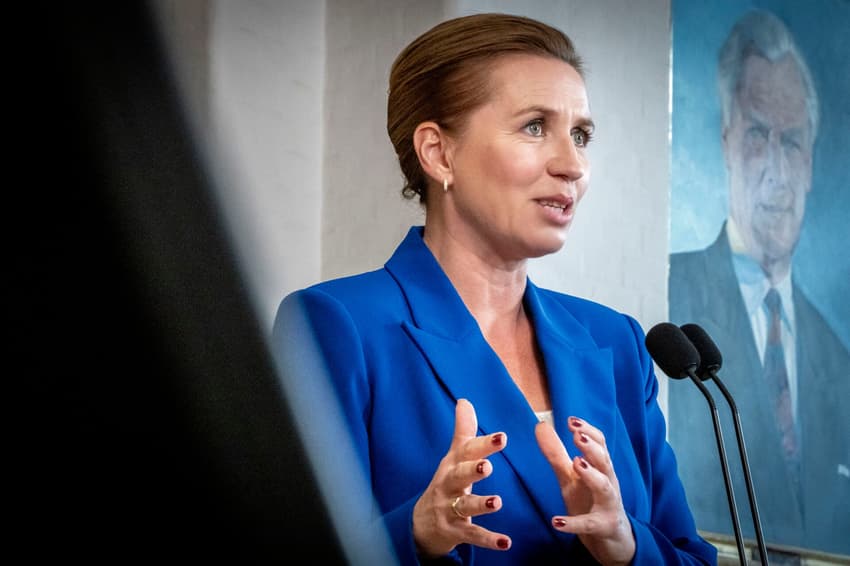Denmark announces June 2024 EU election date

Denmark will hold elections to the EU Parliament on Sunday June 9th next year, a vote in which citizens of other EU countries who live in Denmark are able to participate.
“The Danes will be going to the polls. This is not a general election, of course. But we will vote in the European parliamentary elections. We have decided to have these on Sunday June 9th next year,” Prime Minister Mette Frederiksen said at a briefing on Thursday.
Frederiksen may have referred only to “the Danes” as going to the polls, but citizens of other EU countries can also vote in the Danish EU elections.
In EU parliamentary elections, nationals of all EU countries who reside in Denmark can both vote in the elections and run for office.
Nationals of non-EU countries cannot vote or run in these elections.
To be eligible to vote and run in the EU elections, you must either be eligible to vote in Danish general elections or be an EU national who resides in Denmark. You must be 18 years old or more.
Unlike with general elections, foreign-based Danes can also vote in EU elections in Denmark if they live in another EU country (but not a non-EU country).
Next year’s EU elections must take place between the 6th and 9th of June. Elections to the EU parliament are held every five years.
EU laws state that elections in the member states must take place within a four-day period and always on day between Thursday and Sunday.
Voting must be completed by 9pm Danish time on the Sunday.
“The election will be a little different this time, because we normally are thinking about 14 members of the EU parliament. This time 15 Danish members must be elected,” she said.
READ ALSO: Denmark to get extra seat in EU parliament
Denmark had as many as 16 MEPs in the 1990s, before that number was reduced as the union expanded. It was as low as 13 at one point before increasing again, moving from 13 to 14, and now 15 as a result of Brexit.
Comments
See Also
“The Danes will be going to the polls. This is not a general election, of course. But we will vote in the European parliamentary elections. We have decided to have these on Sunday June 9th next year,” Prime Minister Mette Frederiksen said at a briefing on Thursday.
Frederiksen may have referred only to “the Danes” as going to the polls, but citizens of other EU countries can also vote in the Danish EU elections.
In EU parliamentary elections, nationals of all EU countries who reside in Denmark can both vote in the elections and run for office.
Nationals of non-EU countries cannot vote or run in these elections.
To be eligible to vote and run in the EU elections, you must either be eligible to vote in Danish general elections or be an EU national who resides in Denmark. You must be 18 years old or more.
Unlike with general elections, foreign-based Danes can also vote in EU elections in Denmark if they live in another EU country (but not a non-EU country).
Next year’s EU elections must take place between the 6th and 9th of June. Elections to the EU parliament are held every five years.
EU laws state that elections in the member states must take place within a four-day period and always on day between Thursday and Sunday.
Voting must be completed by 9pm Danish time on the Sunday.
“The election will be a little different this time, because we normally are thinking about 14 members of the EU parliament. This time 15 Danish members must be elected,” she said.
READ ALSO: Denmark to get extra seat in EU parliament
Denmark had as many as 16 MEPs in the 1990s, before that number was reduced as the union expanded. It was as low as 13 at one point before increasing again, moving from 13 to 14, and now 15 as a result of Brexit.
Join the conversation in our comments section below. Share your own views and experience and if you have a question or suggestion for our journalists then email us at [email protected].
Please keep comments civil, constructive and on topic – and make sure to read our terms of use before getting involved.
Please log in here to leave a comment.